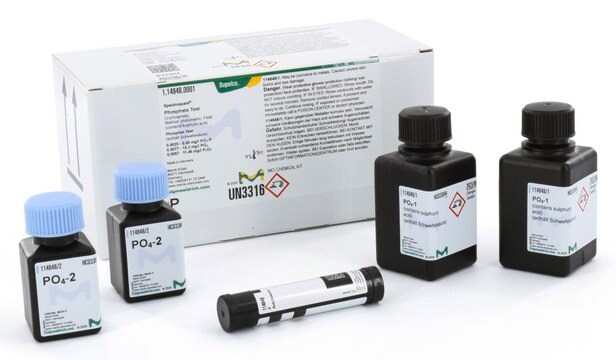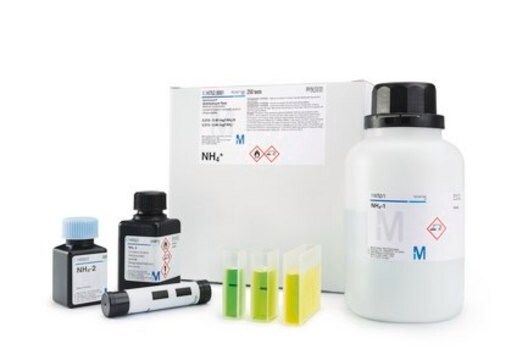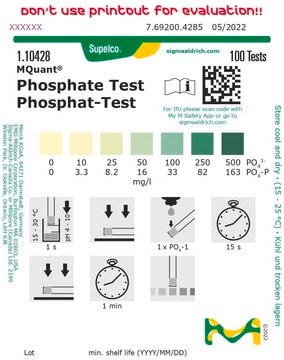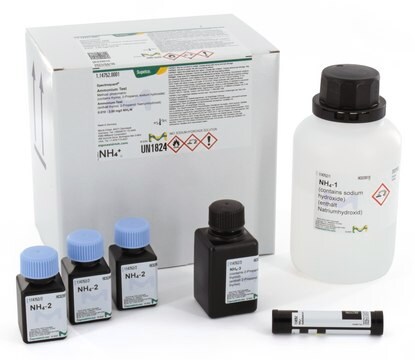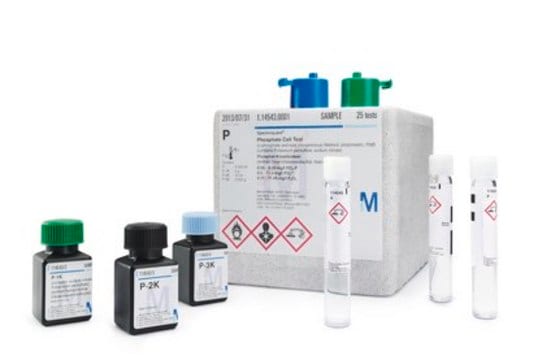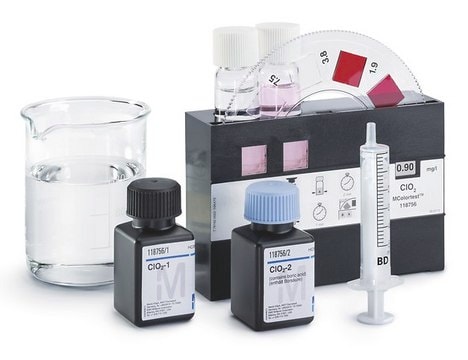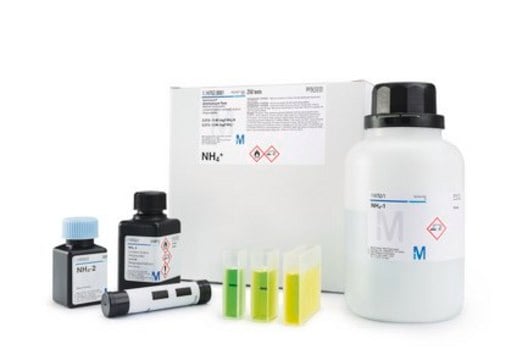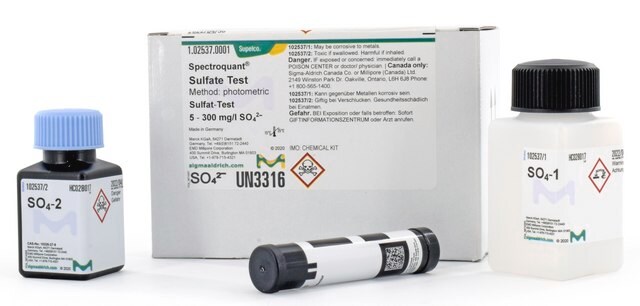1.00798
Phosphate Test
photometric, 1.0-100.0 mg/L (PO4-P), 3-307 mg/L (PO43-), 2-229 mg/L (P2O5), Spectroquant®
About This Item
Productos recomendados
Línea del producto
Spectroquant®
Nivel de calidad
uso
sufficient for 100 tests
analitos específicos
phosphate
intervalo de medida
1.0-100.0 mg/L (PO4-P)
2-229 mg/L (P2O5)
3-307 mg/L (PO43-)
técnicas
photometry: suitable
compatibilidad
for use with Spectroquant® Move 100
for use with Spectroquant® Nova 60 A
for use with Spectroquant® Prove 100
for use with Spectroquant® Prove 300
for use with Spectroquant® Prove 600
método de detección
photometric (Phosphomolybdenum blue)
temp. de almacenamiento
15-25°C
Descripción general
The method is analogous to EPA 365.2+3, APHA 4500-P E, and DIN EN ISO 6878.
The Spectroquant® Phosphate Reagent Test allows the accurate quantification of phosphate. Elevated levels of phosphate might lead to eutrophication of water bodies, which is a risk to the environment. Therefore, the concentration of phosphate in drinking water and wastewater is regulated in many countries.
Further applications are the determination of phosphate in foods & beverages (e.g. beer) and in environmental and agricultural samples (e.g. soil).
The Spectroquant® Reagent Test Kits contain highly stable, ready-to-use reagent mixtures to perform the analysis according to the procedure described in the accompanying instruction leaflet.
All our Cell and Reagent Test Kits are equipped with the unique Live ID (2D barcode) which allows seamless method recognition and contains essential information such as lot number, expiry date, and automatic calibration updates.
Información legal
Palabra de señalización
Danger
Frases de peligro
Consejos de prudencia
Clasificaciones de peligro
Eye Dam. 1 - Met. Corr. 1 - Skin Corr. 1A
Código de clase de almacenamiento
8B - Non-combustible, corrosive hazardous materials
Clase de riesgo para el agua (WGK)
WGK 3
Punto de inflamabilidad (°F)
Not applicable
Punto de inflamabilidad (°C)
Not applicable
Certificados de análisis (COA)
Busque Certificados de análisis (COA) introduciendo el número de lote del producto. Los números de lote se encuentran en la etiqueta del producto después de las palabras «Lot» o «Batch»
¿Ya tiene este producto?
Encuentre la documentación para los productos que ha comprado recientemente en la Biblioteca de documentos.
Los clientes también vieron
Nuestro equipo de científicos tiene experiencia en todas las áreas de investigación: Ciencias de la vida, Ciencia de los materiales, Síntesis química, Cromatografía, Analítica y muchas otras.
Póngase en contacto con el Servicio técnico
